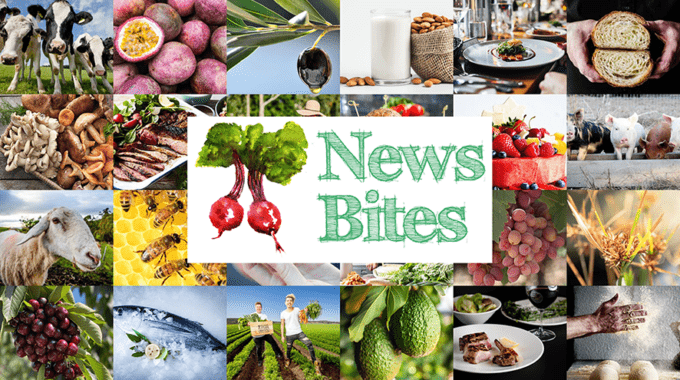The latest in Australian food news
It’s all good news here at Eativity HQ. The sun is shining, Gladys is letting us go on a picnic with four of our besties and Aussie food producers are kicking goals left, right and centre. So what’s the latest in Australian food news this week? Agriculture has had a cracker of a year, new research is putting us on track to be a plant protein powerhouse, the mango season has kicked off and Josh Niland has finally been able to open his much-anticipated charcoal fish shop. And that’s just the beginning. Read on for more good food news.
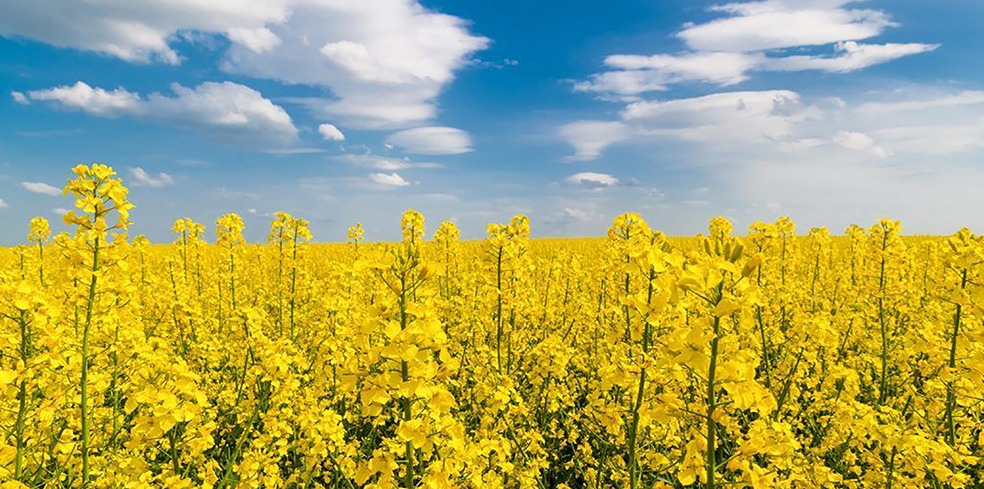
Agriculture on target for $100 billion goal
Australian agriculture is edging closer to the National Farmers’ Federation-led goal of $100 billion by 2030, with phenomenal growth set to see the farm sector tally $73 billion in 2021-2022. The forecast is up from $66 billion last financial year. The latest data from the Australian Bureau of Agriculture, Resource Economics & Sciences paints a glorious picture underpinned by almost perfect seasonal conditions across many parts of the nation.
A bumper winter grain crop is the pillar of the fortuitous forecast, with this year’s harvest set to contribute $30 billion to total farm gate returns. Australian fruit and vegetables will also contribute more than their fair share, adding $12 billion to the $73 billion total. The value of livestock production is also tipped to rise to $33.5 billion.
“This data puts a spring in farmers’ steps and is confirmation that the sector is stronger and more prosperous than ever,” says National Farmers’ Federation President Fiona Simson.
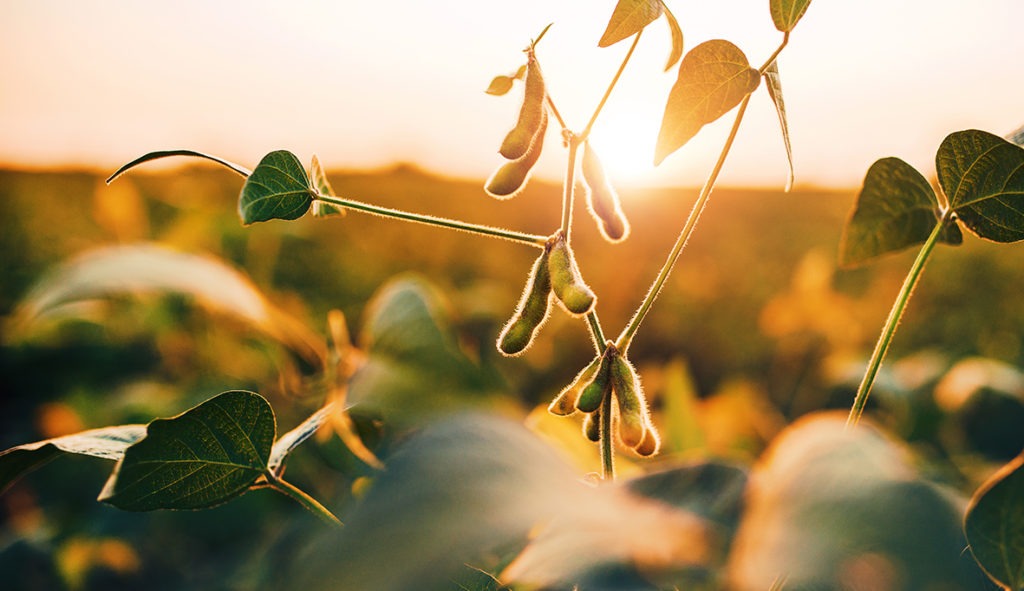
Pulsing with life
Australia produces about four percent of the world’s pulses but is unable to significantly contribute to the increasingly important plant-based protein market. The typical pulses that we grow – chickpeas, faba beans, mung beans, field peas and lentils – are not regularly used for protein additives in meat alternatives. Soybeans and yellow peas are the favoured crops of this market. But these crops are not widely viable for growing in Australia.
But new research is aiming to change this, with the Transitioning Australian Pulses into Protein-based Food Industries project aiming to boost the commercial applications of the pulses that Australia grows. Researchers from the University of Sydney are hoping to find ways of efficiently processing these pulses, keeping water and energy consumption low, into useable protein concentrates and isolates. If this can be achieved and commercialised, it could lead to Australia being a solid source of protein for meat-alternatives in future.
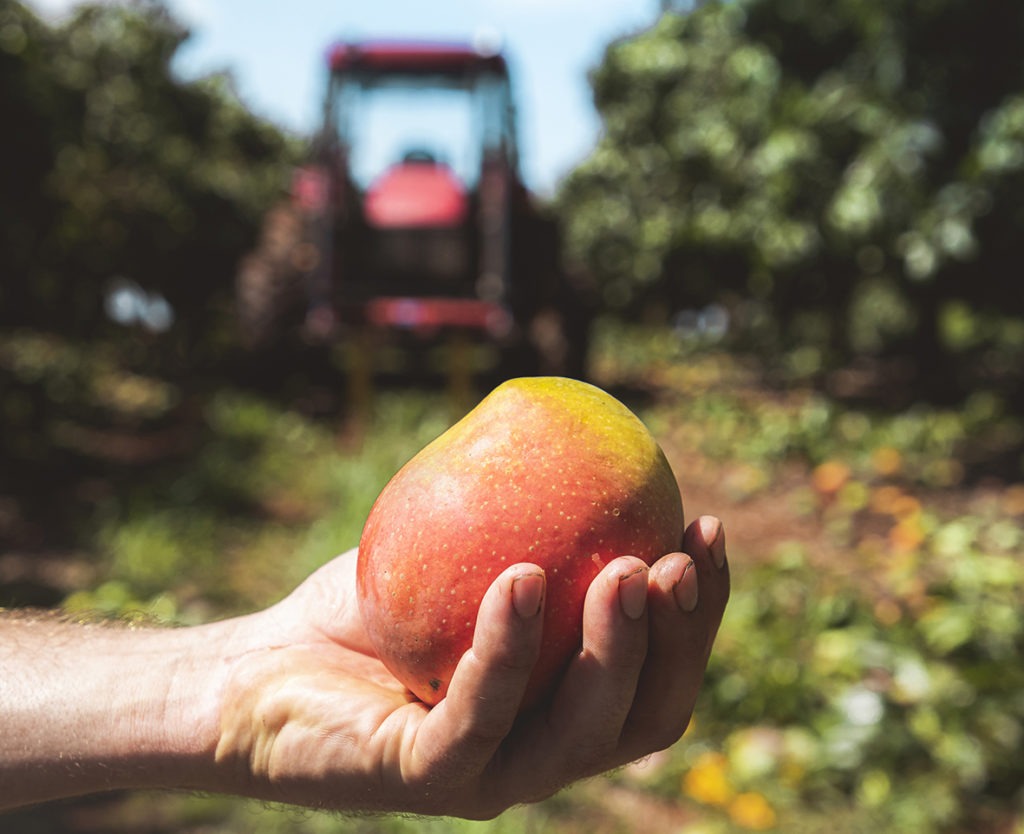
Mango season begins
Australian Mangoes has officially declared the 2021/22 mango season open. Aussies can get their first taste of the sunshine with the tropical delight now in full supply. National distribution levels are due to hit 200,000 trays in mid-late September, making them readily available across the country. Currently, the vast majority of mangoes are being distributed from the Northern Territory, but from November, Queensland will be the major producer of the tropical fruit, with further growers in WA to support the summer fruit momentum.
Starting the season off is the Kensington Pride, hitting shelves from now until early next year. From October, Aussies can get their hands on Calypso and R2E2 varieties, closely followed by Honey Gold mangoes which will be up for grabs from November. These four varieties will be in season until the end of January, at which time the later Keitt, Palmer and Kent varieties will available through to the end of the season in March 2022.
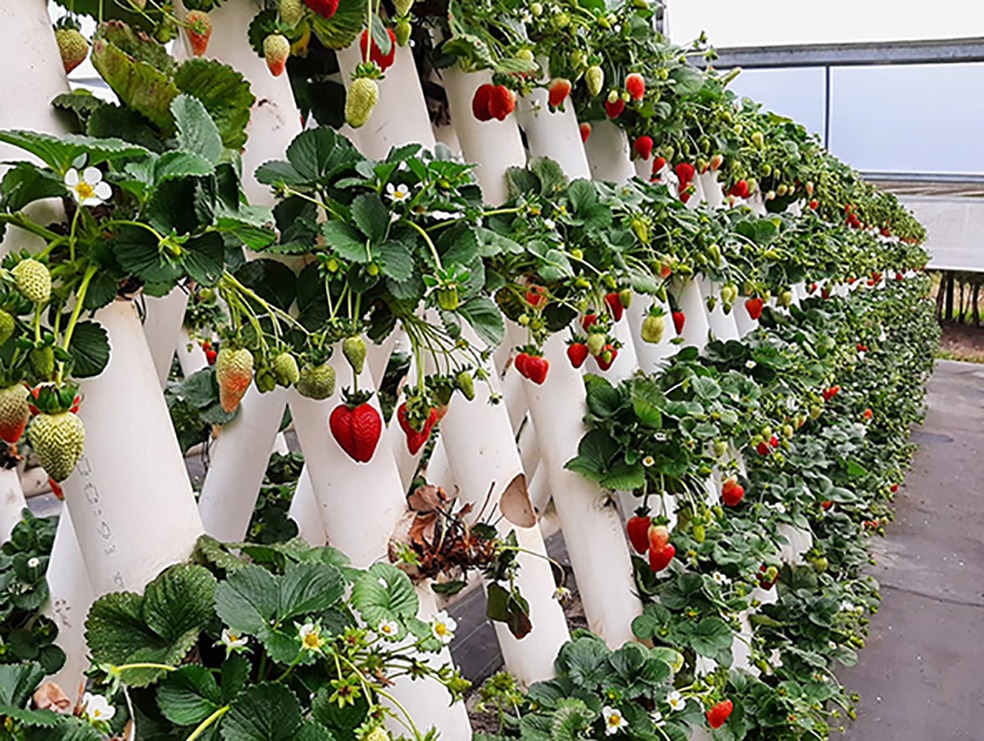
Jam session saves strawbs
One determined NSW strawberry grower has found a sweet way to save his strawberries. At this time of year, Ricardoes Tomatoes & Strawberries on NSW’s mid-north coast is normally inundated with tourists who come to pick their own berries. But with lockdowns halting tourism, hundreds of thousands of berries were set to go to waste. Grower Anthony Sarks decided he couldn’t let this happen, instead teaming up with local artisan jam maker Eric Robinson of The Other Chef in Port Macquarie to make 25,000 jars of strawberry jam. As a result, first grade strawberries from close to 150,000 strawberry plants will be saved.
You can buy Ricardoes strawberry jam and other condiments at ricardoes.com
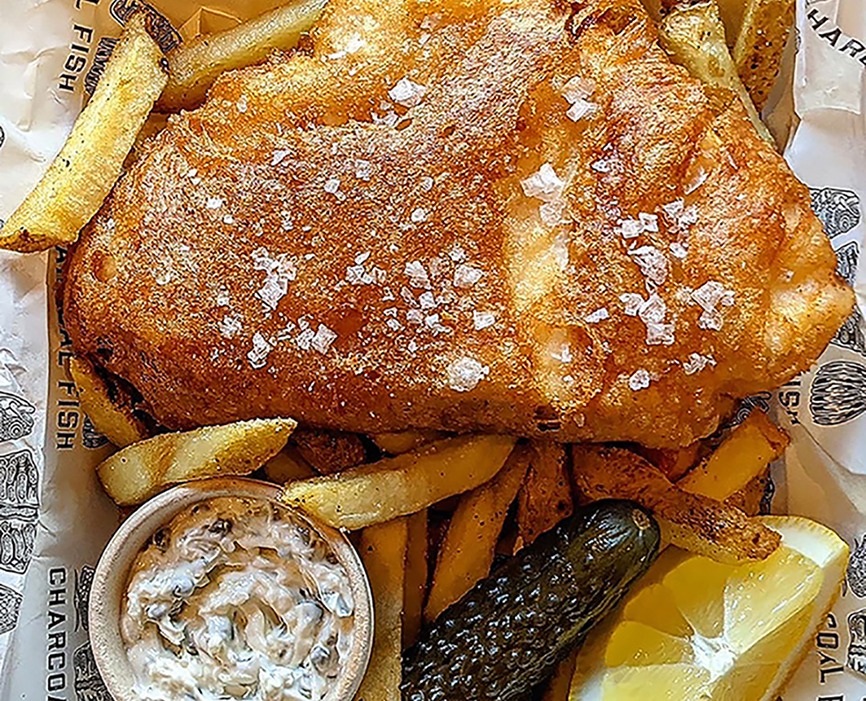
Charcoal Fish opens
Food legend Josh Niland’s latest venture, Charcoal Fish, has opened in Sydney’s Rose Bay. Charcoal Fish is the seafood equivalent of a charcoal chicken shop, albeit a tad fancier. The new shop offers responsibly sourced Australian fish, cooked over charcoal on a rotisserie. The menu features a cod and gravy roll, a double yellowfin tuna cheeseburger and “cod wings”, along with a classic fish and chips, sides and salads. Charcoal Fish was originally due to open in July, but the specialist tradesmen required to fit out the shop were unable to travel to the site due to COVID restrictions. Now the day has finally come. Currently only takeaway is available, but once Sydney opens up, there’ll also be limited dine-in seating.
You can find out more and drool over the menu at charcoalfish.com
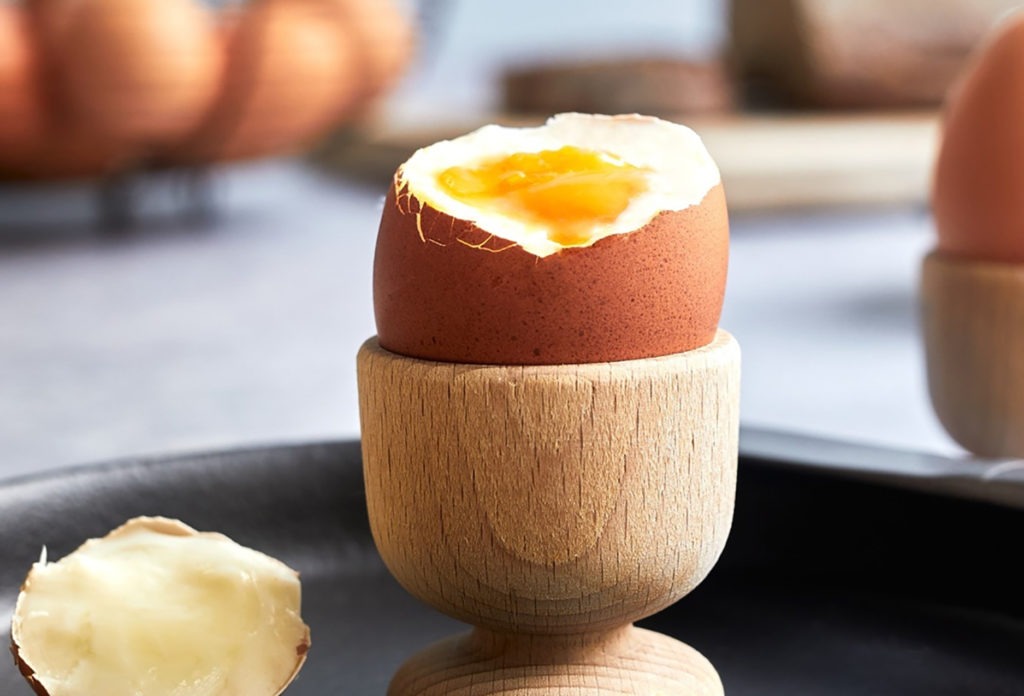
Aussies trust eggs
New research conducted by Voconiq, a research company spun out of the CSIRO, reveals that levels of trust and acceptance of the egg industry by Australians has increased year on year for the last three years, increasing by nearly 10 percent since 2018. The research, commissioned by Australian Eggs, is the fourth annual cycle of community engagement that explores the Australian public’s attitudes and opinions towards the egg industry. Its findings inform Australian Eggs’ annual Sustainability Framework Report, research and development programs and investments. Some key findings from this year’s survey:
• 65% of Australians expressed trust in the egg industry to act responsibly.
• 88% of Australians support the egg industry after weighing up its benefits and costs.
• 80% believe technology has improved welfare and environmental outcomes of egg farms.
• 70% of Australians agreed that the COVID-19 pandemic made them understand their reliance on a safe, reliable egg supply.
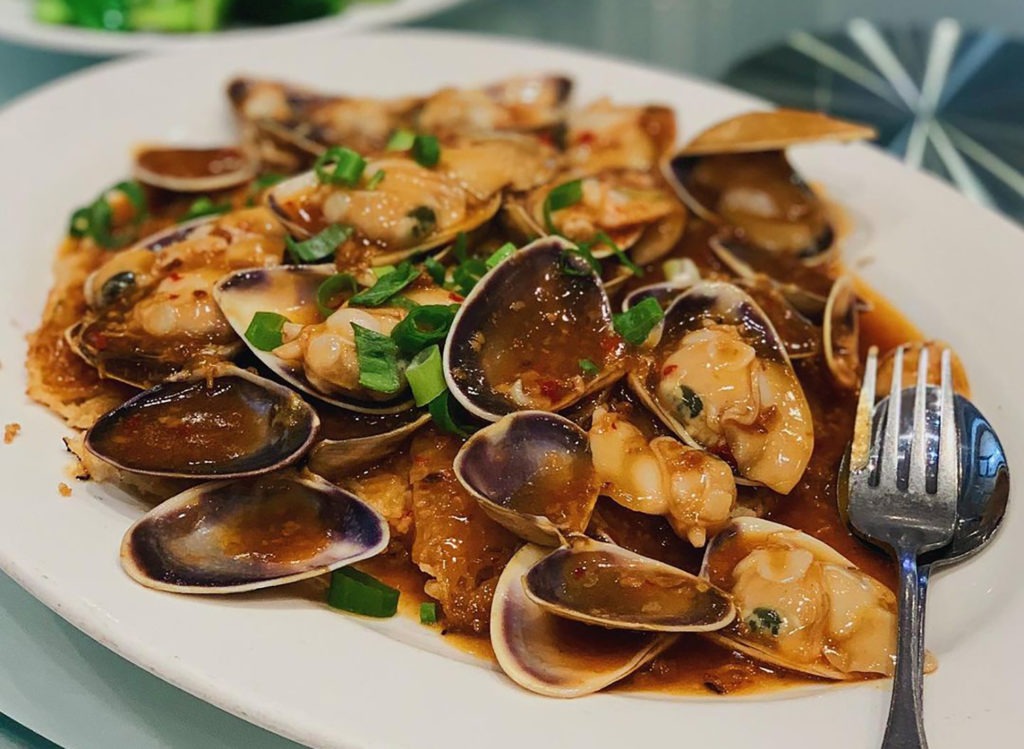
Save of the century
Last month, Sydney foodies were crying into their XO sauce over the news that iconic Chinatown restaurant Golden Century had closed. The announcement came just days after the launch of the #putajabonthemenu campaign, which urges people to get vaccinated to save our hospitality industry – one of the hardest hit by lockdowns.
But creditors have voted to accept a $4.5 million rescue plan proposed by the family behind the restaurant. The plan will be partly funded by the sale of $1.15 million worth of wines from the restaurant’s vault. The kitchen and its equipment will also be surrendered to the banks. However, with the city still in lockdown and a new lease and kitchen to be arranged, it may be some time before this Sydney institution is up and running again.
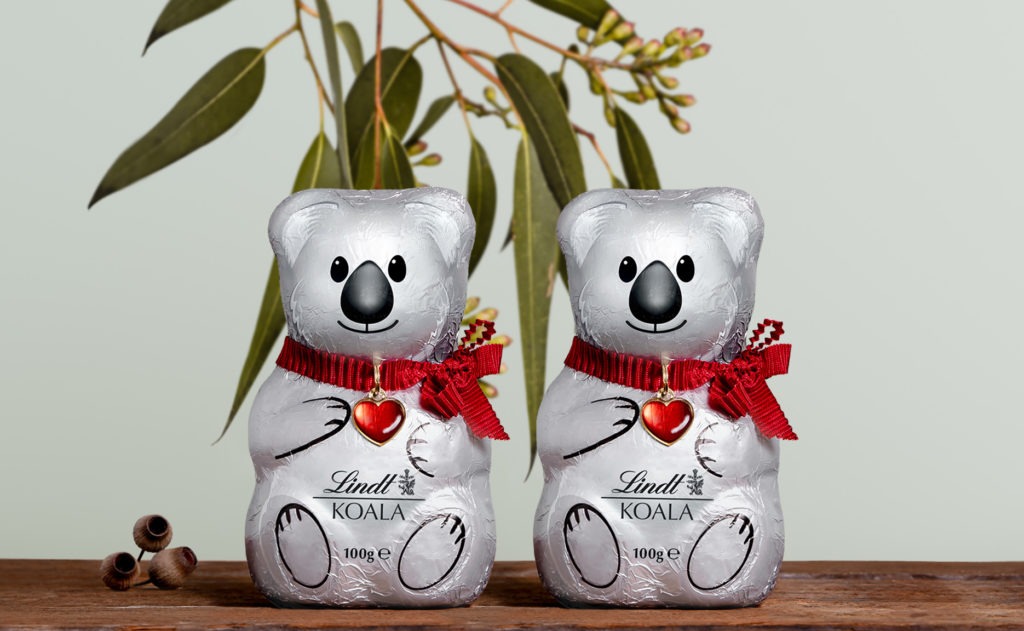
Eat chocolate, help koalas
Lindt Australia has partnered with the Australian Koala Foundation in their efforts to help rejuvenate koala habitat across the country. The collaboration will see the introduction of the limited-edition Lindt Koala. For each Lindt Koala sold, $1 will be donated to the Australian Koala Foundation to support their vital, species-saving work to ensure the long-term survival of Australia’s iconic tree-dwelling marsupial. The Lindt Koala is 100 grams of Lindt’s hallmark smooth and creamy milk chocolate, featuring luxurious honey and caramel notes. It’s available at Lindt’s 20 retail outlets across Australia and via the Lindt website.
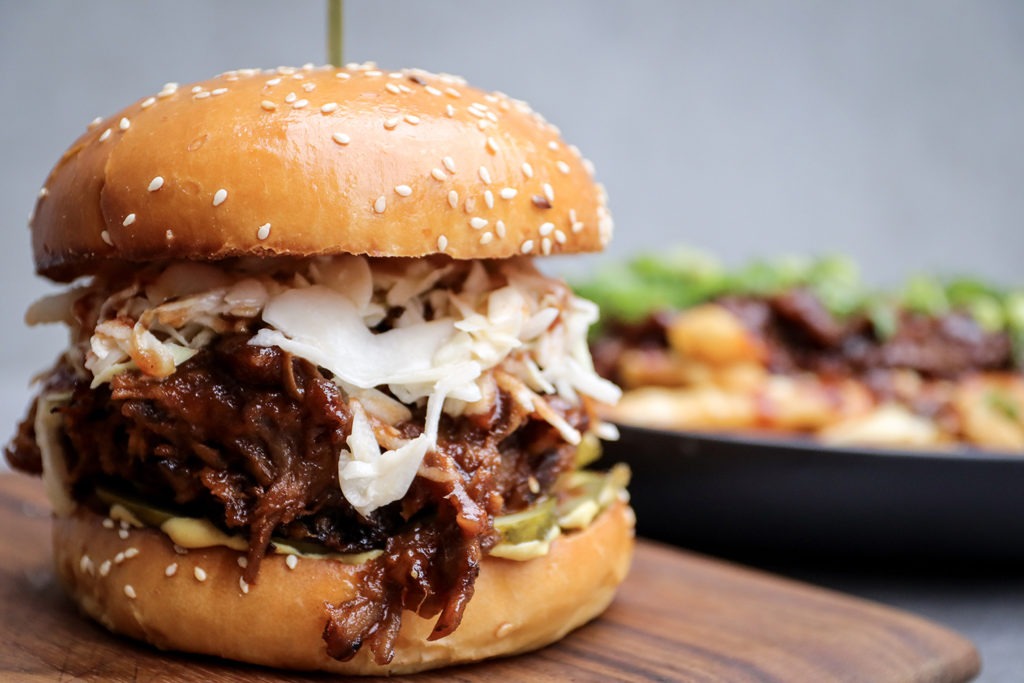
Aussie start-ups on global stage
Eight change-making Australian start-ups are among 45 global food system innovators shortlisted for prestigious food and agri-discovery program, FoodBytes! Pitch 2021. Recognised for outstanding innovation in sustainable supply chains, improved resource management and the next frontier of nutrition, the shortlisted Aussie innovators are:
• Fable: mushroom-based meat alternative
• Ulu Hye: plant-based milk bases
• Your Food Collective: locally grown, ethically sourced groceries
• Great Wrap: plant-based compostable cling wrap
• AgriDigital: digitised platform streamlining the grain supply chain
• AgUnity: technologists integrating remote farming communities with global supply chains
• ThinkBio: biological products that minimise synthetic fertilisers and optimise yields.
• TranspiratiONal-SBM: biodegradable polymer membrane maximising yields and minimising negative environmental impacts.
The top 45 start-ups will now vie for selection in the FoodBytes! top 15 and the chance to participate in a livestreamed public pitch competition in November, which will decide the ultimate winner in three sectors: FoodTech, AgTech and Consumer Packaged Goods.
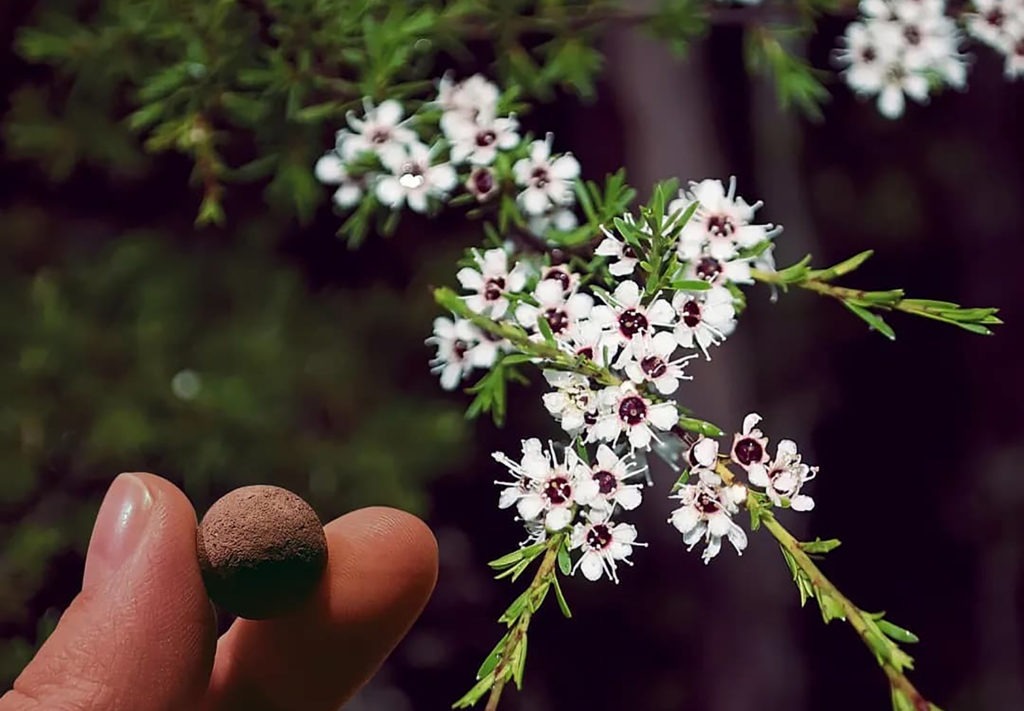
Seed bombs boost biodiversity
Melburnians are embracing biodiversity and making the most of their lockdown walks by creating and distributing “seed bombs” in their local area. Seed bombs are small clay balls filled with seeds that can be tossed into neglected urban spaces. When met with the right weather conditions, these small balls sprout flowers, helping to promote a bright, diverse urban ecosystem. The seed bombs are made by Farmwall, a Melbourne start-up that designs sustainable products that allow people to embrace urban farming, no matter where they live. Farmwall delivers the seed bombs in a deconstructed kit, providing a family-friendly activity that offers the opportunity to learn about biodiversity. “Seed bombers” also gain access to an interactive seed bombing map, a tool that visualises the collective impact of the activity and fosters a sense of collectiveness during lockdown.
You can order your Biodiversity Seed Bomb Kit at farmwall.com
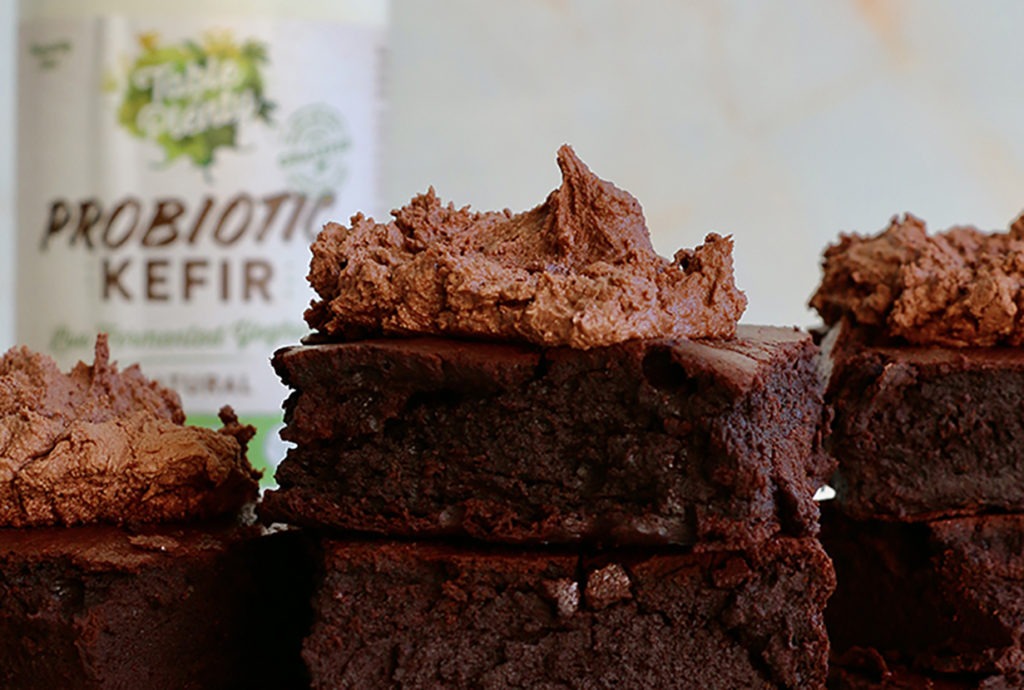
Get your gut right with Luke Hines & Table of Plenty
Table of Plenty has made September Healthy Gut Month. It’s the perfect time to remind yourself why your gut is your best friend – and start treating it as such. Table of Plenty founder Kate Weiss says Healthy Gut Month is a great opportunity to focus on small changes that can offer a big benefit to your digestive system and overall health. To help you whip up some quick and easy (and delicious) gut-friendly recipes, celeb chef Luke Hines will be joining Heiss for an Instagram live feed on Monday, September 20 at 6pm. Hines will be showing followers how to use Table of Plenty kefir (which is jam-packed with probiotics) in the kitchen. To check it out, just follow Table of Plenty’s Instagram.
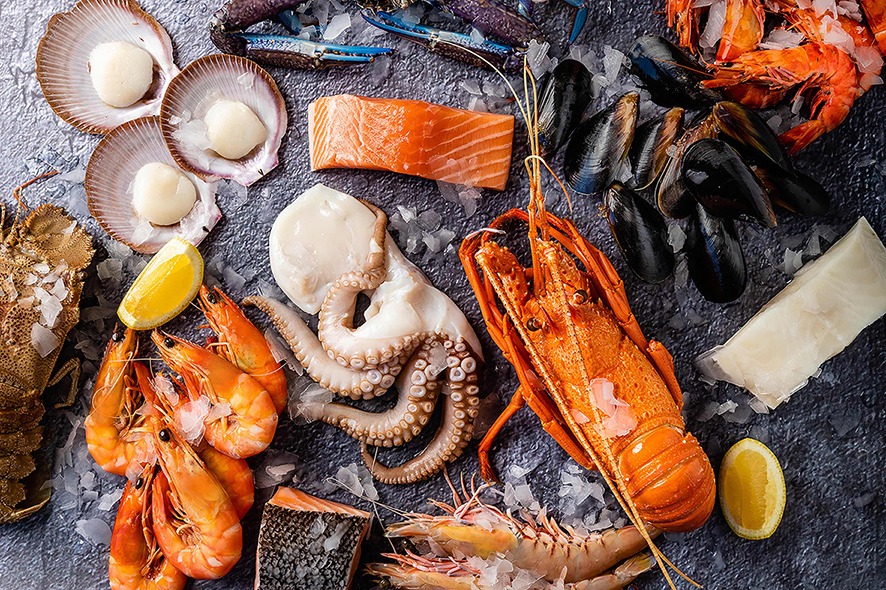
The freshest seafood, delivered
Steve Costi’s Seafood has launched a new online store, delivering market-fresh seafood, prepared and packed each morning, directly to your door. Customers can choose from a huge selection of fresh, high-quality seafood, including whole lobsters, fish fillets, oysters, prawns, sashimi platters, and ready-made meals like seafood lasagne and fish pie.
Family-run business Costi’s is a trusted name within the industry. Steve’s father opened a fish shop in Lakemba in 1958, and Steve Costi’s Seafood began back in 1985 with the opening of Steve’s first store in the world-class David Jones food hall on Market Street, Sydney. The business now has stores across Sydney, Newcastle and Melbourne, and this new move into the digital world will allow Costi’s to reach even more customers.
Delivery is currently available across Sydney. To find if Costi’s delivers to your suburb or postcode, click here. For more about Steve Costi’s Seafood, head to costi.com.au
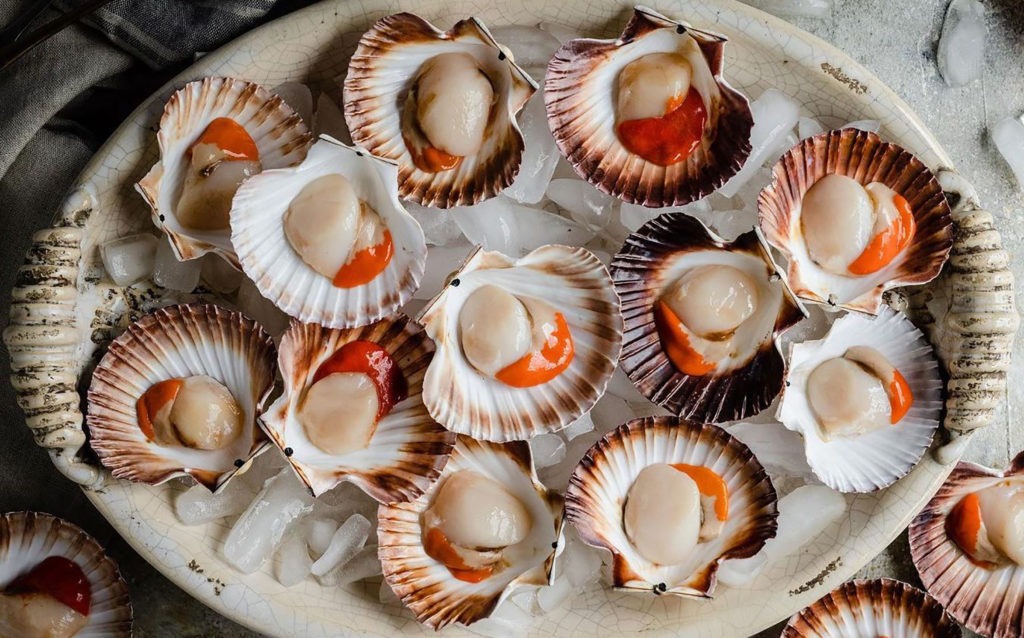
Just in case you missed it…
Eativity took a dive into the Tasmanian scallop industry and discovered some interesting facts about how scallop fisheries operate. We also gave you five great reasons to eat more plant foods and took a virtual trip to Tassie to learn about a grassroots movement that’s empowering small food producers to succeed. This week also offered those in NSW and Victoria some new freedoms, including outdoor socialising with up to five fully-vaxxed people. It’s the perfect excuse for a picnic, so we packed up some easy spring picnic ideas to fill your hamper. Finally, we were so inspired by an organic market gardener from South Australia that we just had to share her story to mark Organic Awareness Month.
Don’t want to miss a thing? Sign up to our newsletter below, and follow us on Facebook and Instagram. We’ve got more good food news to inspire you next week. Stay tuned!


